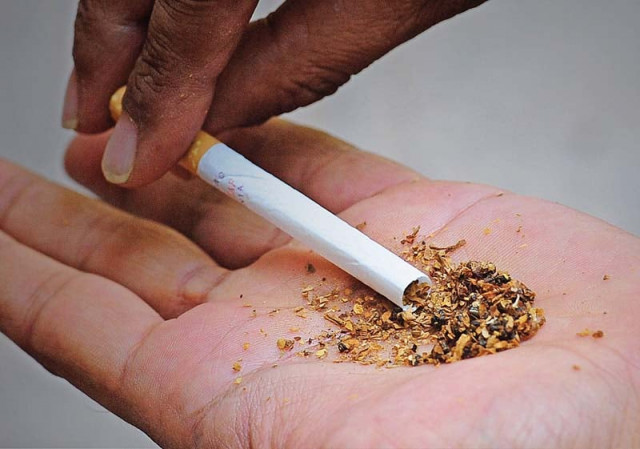Moot highlights hazards of tobacco intake
Experts say its consumption claims around 1.7 million lives every year

The society for the Protection of Rights of the Child (SPARC) recently organised a seminar titled “Need for Sustainable Tobacco Control Policies in Pakistan” at a local hotel in Islamabad on Tuesday to raise awareness on tobacco consumption.
Director General Health, Dr Shabana Saleem was invited as the chief guest of the event. On the occasion, she said that Pakistan is lucky to have young people as the majority of population, they are the asset of the country. Unfortunately, the youth has been battling the pandemic of tobacco use. As per statistics, around 1200 children aged between 6 to 15 began to smoke every year, she added.
She emphasised that we can’t let any industry deliberately target our youth to put their future in jeopardy. Pakistan’s tobacco control efforts can only become sustainable if all stakeholders i.e. government, political parties, civil society, academia as well as media put children’s future in front and take a joint stand against tobacco industry.
She further said that the tobacco control cell at the ministry was active and despite limited resources, the ministry is focusing on the implementation of existing policies and introducing new policies with the support of parliamentarians, civil society, academia, and media.
Another speaker, a Former Technical focal Person of Govt. of Pakistan for WHO’s Framework Convention on Tobacco Control (FCTC) Dr Ziauddin Islam shared alarming consequences of tobacco consumption. He said that the total number of smokers in Pakistan has reached up to 31 million. Tobacco consumption is causing serious health implications for Pakistanis and yearly, 170,000 people die as a result, he added.
He also said that the World Health Organisation (WHO) has repeatedly recommended Pakistan to increase taxes on tobacco products to reduce consumption and to recover the health costs. However such recommendations haven’t been implemented because the tobacco industry’s influence in policymaking runs deep. He claimed that one of the biggest examples is ‘Health Levy Bill 2019’ which has been repeatedly blocked by key policymakers because of their strong working relationship with the tobacco industry.
On the occasion, Program Manager, SPARC Khalil Ahmed Dogar said that Pakistan’s present as well as future depends on the survival, protection, and promotion of rights, and development of its children. Therefore, we must set our differences aside when it comes to children and show our full commitment to establishing a sustainable tobacco control program in Pakistan.
He further added that the tobacco industry has hurt the national exchequer on multiple fronts via underreporting, false claims of illicit trade, uninformed price raises, etc. The huge imbalance caused by the tobacco industry can only be covered by imposing additional health tax. This health tax must be separate from routine taxes so that the additional amount can be utilised to sustain tobacco control efforts.
Published in The Express Tribune, November 10th, 2022.



















COMMENTS
Comments are moderated and generally will be posted if they are on-topic and not abusive.
For more information, please see our Comments FAQ